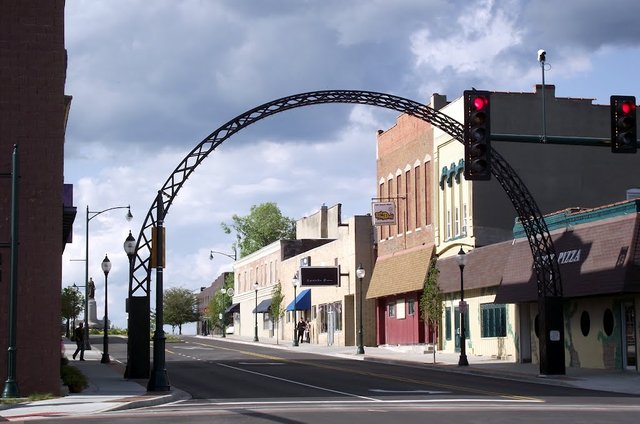Jacksonville City Council Tables National Historic Registry Proposal

JACKSONVILLE (Heartland Newsfeed) - Jacksonville's City Council was forced to table an issue on registering the Jacksonville Square as part of the National Historic Registry during their regular Monday, June 25 business meeting.
Several private property and business owners in the district showed up to the council's chambers to voice their displeasure on the restrictions of the registry and the abrupt move by the City Council to push the matter through. The motion was based on a proposal by the separate Jacksonville Historic Preservation Commission who oversees Jacksonville's Historic District primarily on College Avenue and State Street in the city.
While the National Historic Registry provides no real benefits to the City itself, it does have some stipulations and tax credits via the federal government. According to the National Park Service, a 20% income tax credit is available for the rehabilitation of historic, income-producing buildings that are determined by the Secretary of the Interior, through the National Park Service, to be “certified historic structures.” The Internal Revenue Service defines qualified rehabilitation expenses on which the credit may be taken. These qualifications can be extremely restrictive for building owners and on the building itself. There's also a 10% Tax Credit for Historic Registry buildings that are non-historical placed into service prior to 1936. It also has similar restrictive criteria. The National Register for Historic Places has a $16.8 million operational budget from the Federal government, and uses it to pay for many of the programs and tax incentives they grant through registry applications. They also receive several thousand dollars through the licensing and permitting process for listing buildings on the registry.
The biggest restriction comes with historic easements on property. A historic preservation easement is a voluntary legal agreement, typically in the form of a deed, that permanently protects an historic property. Through the easement, a property owner places restrictions on the development of or changes to the historic property, then transfers these restrictions to a preservation or conservation organization. A historic property owner who donates an easement may be eligible for tax benefits, such as a Federal income tax deduction. Most of the buildings in the Jacksonville Square are owned by very few owners, while the business owners lease the space. Through this business arrangement, many local business owners would be under pressure to pay out of pocket costs to maintain both interior and external appearances of the buildings placed on the registry.
Jacksonville's Historic Preservation consists of 10 members. These 10 members hold the homes and buildings in the historic district to a series of ordinances created by the commission without any oversight from local or state government. Most of the preservation in the district is done through money from the property owners. Property owners must apply for a Certificate of Appropriateness before a building permit is issued. Routine maintenance, or work that will not alter the outside of the building can be made without approval of the committee. If the property owner is disapproved by JHP, they are then required to file a grievance with the Jacksonville City Council within 15 days.
The City of Jacksonville is a Certified Local Government by the Illinois Historic Preservation Agency and is required to have a historic district with a preservation ordinance, an enforcement mechanism of the ordinance, along with a historic preservation plan on file with the IHPA. The IHPA is also a source of grant money and financial assistance for the City of Jacksonville.
Bill Scott, an ex-officio member of the Jacksonville Preservation Commission, also serves as an Alderman in Ward 1 on the Jacksonville City Council. He was the lone "no" vote to table the plans for the historic district on the Square.
Jacksonville's Square and Central Park area went through massive renovations beginning in the late 90s, with work being completed in late 2014 resulting in over a few million dollars in changes and returning the square to a roundabout for traffic. The square now hosts many year-long events and locally owned businesses that are presented as part of the city's tourism attraction for visitors throughout the year. Many feel the changes would cause an unwanted economic burden on those business and cause the square to return to a depraved state when the Square closed after its last major renovations in 1974 that saw the Square close highway traffic and lost its use as a major public space.
The return to the ordinance will be presented as old business as next month's council meeting as the council and members of the JPC will disseminate more information about registering the buildings to property and business owners.
Posted from my blog with SteemPress : http://heartlandnewsfeed.com/2018/06/26/jacksonville-city-council-tables-national-historic-registry-proposal/